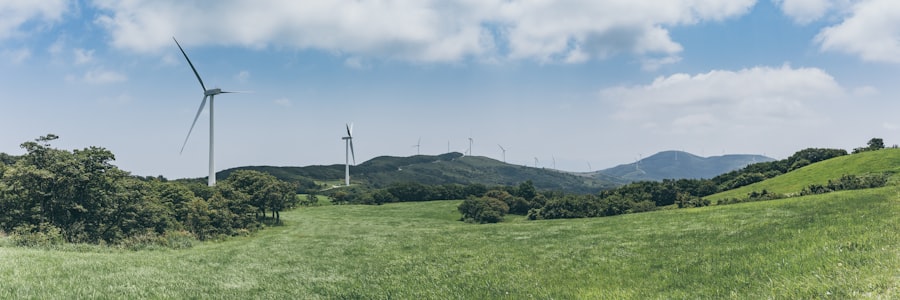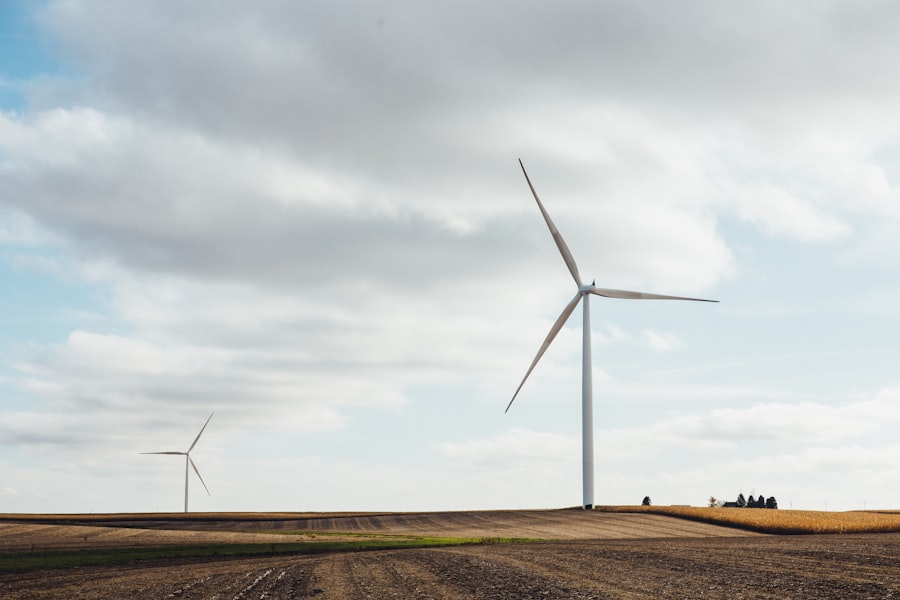The green economy is an economic model that prioritizes environmental sustainability and resource efficiency while promoting social inclusivity. It aims to reduce environmental risks and ecological scarcities through sustainable development practices. Key components of the green economy include renewable energy, sustainable agriculture, green building and construction, environmental policy and advocacy, and eco-friendly technological innovations.
This economic approach represents a shift from traditional, unsustainable practices towards environmentally conscious methods across various industries and sectors. The green economy not only focuses on environmental protection but also seeks to create new opportunities for economic growth and job creation. It encourages innovative solutions to environmental challenges while fostering the development of new markets and industries.
The emergence of the green economy is a response to growing concerns about climate change, resource depletion, and environmental degradation. It strives to meet present needs without compromising the ability of future generations to meet their own. This holistic approach to economic development recognizes the interconnectedness of social, economic, and environmental systems.
The green economy encompasses a wide range of initiatives and practices designed to reduce environmental impact and promote sustainability. It represents a fundamental shift in how economic activities are conducted, with a focus on long-term environmental and social well-being alongside economic prosperity.
Key Takeaways
- The green economy refers to an economy that aims to reduce environmental risks and ecological scarcities, and that aims for sustainable development without degrading the environment.
- Job opportunities in renewable energy are growing rapidly, with a focus on solar, wind, hydro, and geothermal energy sources.
- Careers in sustainable agriculture and food systems involve promoting environmentally friendly farming practices and ensuring food security for future generations.
- Green building and construction careers focus on creating energy-efficient and environmentally friendly buildings and infrastructure.
- Environmental policy and advocacy careers involve working to influence government policies and regulations to promote sustainability and protect the environment.
- Green technology and innovation careers involve developing and implementing new technologies to reduce environmental impact and promote sustainability.
- Skills and education for green economy careers include knowledge of environmental science, renewable energy technologies, sustainable agriculture practices, green building techniques, and policy analysis and advocacy.
Job Opportunities in Renewable Energy
Types of Professionals in Renewable Energy
Engineers, technicians, project managers, and researchers are just a few examples of the types of professionals needed in this field.
Growing Demand for Skilled Workers
With the increasing demand for clean energy sources, there is a growing need for skilled workers to design, install, and maintain renewable energy systems. In addition to technical roles, there are also opportunities in sales, marketing, finance, and policy development within the renewable energy sector.
Career Paths and Opportunities
Whether it’s working for a solar panel manufacturer, a wind farm developer, or a renewable energy consultancy, there are numerous career paths in this exciting and rapidly expanding field. The renewable energy sector offers not only job security but also the opportunity to make a positive impact on the environment.
Careers in Sustainable Agriculture and Food Systems

Sustainable agriculture and food systems are essential components of the green economy, offering a wide range of career opportunities. From organic farming and permaculture to food distribution and policy development, there are numerous ways to get involved in this field. Farmers, agronomists, food scientists, and food policy analysts are just a few examples of the types of professionals needed in sustainable agriculture and food systems.
With the increasing demand for locally sourced, organic, and sustainably produced food, there is a growing need for skilled workers to support these practices. In addition to production roles, there are also opportunities in education, advocacy, research, and entrepreneurship within the sustainable agriculture and food systems sector. As consumers become more conscious of where their food comes from and how it is produced, there is a growing demand for professionals who can help create a more sustainable and equitable food system.
Whether it’s working on an organic farm, conducting research on sustainable farming practices, or advocating for food policy reform, there are numerous career paths in this dynamic and impactful field. Sustainable agriculture and food systems offer not only the opportunity to work with nature but also the chance to contribute to healthier communities and a more resilient food system.
Green Building and Construction Careers
Green building and construction are key components of the green economy, offering a wide range of career opportunities. From sustainable design and construction to green building materials and energy-efficient technologies, there are numerous ways to get involved in this field. Architects, engineers, construction managers, and building inspectors are just a few examples of the types of professionals needed in green building and construction.
With the increasing demand for environmentally friendly buildings and infrastructure, there is a growing need for skilled workers to design, build, and maintain sustainable structures. In addition to technical roles, there are also opportunities in project management, real estate development, marketing, and policy development within the green building and construction sector. As governments and businesses around the world commit to reducing their carbon footprint, the demand for professionals with expertise in green building practices will continue to grow.
Whether it’s working for a sustainable design firm, a green building materials manufacturer, or a construction company specializing in energy-efficient buildings, there are numerous career paths in this innovative and rapidly evolving field. Green building and construction offer not only job security but also the opportunity to make a positive impact on the built environment.
Environmental Policy and Advocacy Careers
Environmental policy and advocacy are crucial components of the green economy, offering a wide range of career opportunities. From policy analysis and development to community organizing and lobbying, there are numerous ways to get involved in this field. Environmental lawyers, policy analysts, community organizers, and lobbyists are just a few examples of the types of professionals needed in environmental policy and advocacy.
With the increasing urgency of addressing climate change and environmental degradation, there is a growing need for skilled workers to advocate for policies that protect the environment and promote sustainability. In addition to advocacy roles, there are also opportunities in research, education, communications, and fundraising within the environmental policy and advocacy sector. As public awareness of environmental issues grows, there is a growing demand for professionals who can help shape policies that address these challenges.
Whether it’s working for an environmental nonprofit organization, conducting research on environmental policy solutions, or advocating for legislative change at the local or national level, there are numerous career paths in this impactful and dynamic field. Environmental policy and advocacy offer not only the opportunity to influence decision-making but also the chance to contribute to a more sustainable future for all.
Green Technology and Innovation Careers

Types of Professionals Needed
Engineers, scientists, entrepreneurs, and product developers are just a few examples of the types of professionals needed in green technology and innovation.
Growing Demand for Skilled Workers
With the increasing demand for innovative solutions to environmental challenges, there is a growing need for skilled workers to develop and implement new technologies that promote sustainability. In addition to technical roles, there are also opportunities in business development, venture capital investment, marketing, and public relations within the green technology and innovation sector.
Career Paths and Opportunities
Whether it’s working for a clean tech startup, developing new sustainable materials or products, or investing in green technology ventures, there are numerous career paths in this exciting and rapidly evolving field. Green technology and innovation offer not only job security but also the opportunity to be at the forefront of creating solutions for a more sustainable future.
Skills and Education for Green Economy Careers
To pursue a career in the green economy, it is important to develop a diverse set of skills and obtain relevant education. Technical skills such as engineering, design, project management, and data analysis are essential for roles in renewable energy, green building and construction, and green technology innovation. In addition to technical skills, communication skills such as public speaking, writing, and advocacy are crucial for careers in environmental policy and advocacy.
Furthermore, skills in critical thinking, problem-solving, collaboration, and adaptability are valuable across all sectors of the green economy. Education is also key to preparing for a career in the green economy. Degrees in environmental science, sustainability studies, renewable energy engineering, sustainable agriculture, urban planning, environmental law or policy can provide a strong foundation for entering these fields.
Additionally, obtaining certifications or specialized training in areas such as LEED (Leadership in Energy and Environmental Design) for green building professionals or GIS (Geographic Information Systems) for environmental research can enhance job prospects within specific sectors of the green economy. In conclusion, the green economy offers diverse career opportunities across various sectors including renewable energy, sustainable agriculture and food systems, green building and construction, environmental policy and advocacy, as well as green technology innovation. Pursuing a career in the green economy requires developing a diverse set of skills including technical expertise as well as communication skills such as public speaking or writing.
Obtaining relevant education through degrees or specialized training can provide a strong foundation for entering these fields. The green economy not only offers job security but also provides an opportunity to make a positive impact on the environment while contributing to a more sustainable future for all.
If you’re interested in exploring the key skills needed for a lifetime of opportunity in the green economy, you may also want to check out this article on developing key skills for a lifetime of opportunity. It provides valuable insights into the essential skills that can help you thrive in a rapidly evolving and globalized business environment, which is crucial for success in the green economy.
FAQs
What is the green economy?
The green economy refers to an economy that aims to reduce environmental risks and ecological scarcities, and that aims for sustainable development without degrading the environment.
What are some career opportunities in the green economy?
Career opportunities in the green economy include roles in renewable energy, sustainable agriculture, environmental conservation, green building and construction, environmental policy and advocacy, and sustainable transportation.
What are some examples of specific green economy jobs?
Specific green economy jobs include solar panel installer, wind turbine technician, environmental engineer, sustainability consultant, green building architect, environmental lawyer, and sustainable agriculture specialist.
What skills are important for a career in the green economy?
Important skills for a career in the green economy include knowledge of environmental issues, sustainability practices, renewable energy technologies, and environmental policy, as well as skills in project management, problem-solving, and communication.
What education and training are needed for a career in the green economy?
Education and training needed for a career in the green economy vary depending on the specific role, but may include degrees in environmental science, engineering, sustainability, or related fields, as well as certifications or specialized training in renewable energy technologies or sustainable practices.



